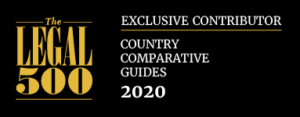In the Netherlands, the first month of 2018 was dominated by the attention around cryptocurrencies. Multiple events took place, such as the “Day of the Crypto” in Amsterdam RAI and the ICFG-symposium “Cryptomoney” at the Dutch Central Bank. On the 24th of January, a round-table discussion about cryptocurrencies and Initial Coin Offerings (ICO’s) took place at the Dutch Ministry of Finance.
Cryptocurrencies are virtual or digital tokens representing a value. ICOs are considered an innovative way of obtaining funds from investors without the assistance of intermediating banks. Crowdfunding via a blockchain.
Amongst others, the Dutch Authority for the Financial Markets (AFM), the Dutch Central Bank (DNB) and the Authority for Consumers & Markets (ACM) were invited to round-table discussion of the Dutch Ministry of Finance. In preparation for the round-table discussion, each of the regulators released a statement about the relevant subject. Among other things, DNB said in the statement of 23 January 2018:
“Investors need to realize that there will be no safety net if the value of a crypto or Initial Coin Offering (ICO) token nosedives.”
The AFM noted the following:
“In principle, an ICO can take place within the framework of financial regulation. This is the case if the offered tokens in an ICO qualify as a security (for example a share or a bond) under the Dutch Financial Supervision Act. However, the practice is different.”
In its document of 24 January 2018, the ACM noted that it is possible that the current regulatory framework does not fully match with the phenomenon of cryptocurrency and ICOs.
All these statements show that the regulators are currently still considering how to treat and approach these new developments best. They also show that, for the time being, the attention is mainly focused on the protection of the consumer.
Similar statements are being issued abroad. The three ESAs (ESMA, EBA en EIOPA) issued a warning for the high risks involved, among other things in respect of the extreme volatility, limited exit possibilities and the limited transparency on price formation. The ESAs also note that most ICOs and cryptocurrency initiatives fall outside any regulatory oversight. The US supervisory authority, the SEC,, and the UK regulator, the FCA. Issued equal statements.
However, it is important to note that – depending on the structure used – cryptocurrencies and ICOs can fall under the scope of a regulatory framework that is already in place today. In particular, a prospectus obligation could be triggered if the tokens qualify as securities, and the receipt and transmission of orders in financial instruments is regulated under MiFID II. Furthermore, cryptofunds could fall under AIFMD resulting in a license obligation for the manager of such funds. Moreover, under the fourth Anti Money Laundering Directive, crypto exchanges are required to identify their clients and to report suspicious transactions to the relevant FIU.
Is your company considering issuing its own token by means of an ICO and do you require legal assistance? Please contact FG Lawyers via contact@wordpress-151149-2652345.cloudwaysapps.com. We are happy to assist!




